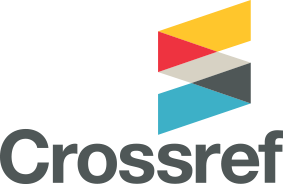Radioterapi Eksternal terhadap Nilai Ambang Eksitabilitas Saraf Fasialis pada Radioterapi Eksternal Penderita Karsinoma Nasofaring
Abstract
Radioterapi eksternal (external beam radiation therapy/EBRT) merupakan pengobatan utama karsinoma nasofaring. Efek samping radioterapi eksternal yaitu neuropati saraf tepi. Radioterapi eksternal menyebabkan perubahan perbandingan antara akson dan area total serabut saraf. Tujuan penelitian ini menilai pengaruh radioterapi eksternal pada perubahan nilai ambang eksitabilitas saraf fasialis pada penderita karsinoma nasofaring. Jenis penelitian adalah studi analitik observasional dengan rancangan pre-post design. Penelitian dilakukan di Departemen Ilmu Kesehatan Telinga Hidung Tenggorok–Bedah Kepala Leher Rumah Sakit Dr. Hasan Sadikin Bandung bulan September–November 2012. Pada penelitian ini dilakukan pemeriksaan nerve excitability test (NET) praradioterapi, fraksinasi radiasi ke-15, fraksinasi ke-33, dan 4 minggu pascaradioterapi. Hasil penelitian ini dihitung dengan menggunakan uji-t berpasangan. Terdapat 26 subjek mengalami peningkatan nilai NET selama radioterapi sesuai dengan kemaknaan jumlah fraksinasinya (p<0,001). Hal tersebut tidak mempunyai hubungan yang signifikan dengan jenis kelamin dan usia penderita. Simpulan, terjadi peningkatan nilai NET sesuai bertambahnya fraksinasi radiasi, namun 4 minggu pascaradioterapi mengalami penurunan nilai NET mendekati >nilai praradioterapi pada penderita karsinoma nasofaring. [MKB. 2013;45(3):167–73]
Facial Nerve Excitability Values on Nasopharyngeal Carcinoma Patients who Undergo External Beam Radiotherapy
External radiotherapy is the main treatment for nasopharyngeal carcinoma. One of complication of the external beam radiotherapy (EBRT) is peripheral neuropathy. External radiotherapy could cause changes in ratio between axons and the total area of the nerve fibers. The purpose of this study was to assess the influence of EBRT to the changes in the value of the facial nerve excitability in nasopharyngeal carcinoma. This research was observational analytic study by pre and post design and it was performed in the months September until November, year 2012 at the Otolaryngology–Head and Neck Surgery Department of Dr. Hasan Sadikin Hospital Bandung. Nerve excitability test (NET) examination was performed just before EBRT, fractionation the 15th, fractionation the 30th, and four weeks after EBRT. Analytical statistic calculated by using paired t-test. They were 26 subjects had significant of NET value increased during radiotherapy according to the number of fractionation (p<0.001). It does not have a significant relationship with gender and age of the patient. In conclusions, there is increased NET value corresponding increase in fractionation radiation, but they would be decreases approaching the original value as before EBRT on nasopharyngeal carcinoma patients. [MKB. 2013;45(3):167–73]
Full Text:
PDFArticle Metrics
Abstract view : 1598 timesPDF - 867 times

MKB is licensed under a Creative Commons Attribution-NonCommercial 4.0 International License
View My Stats






